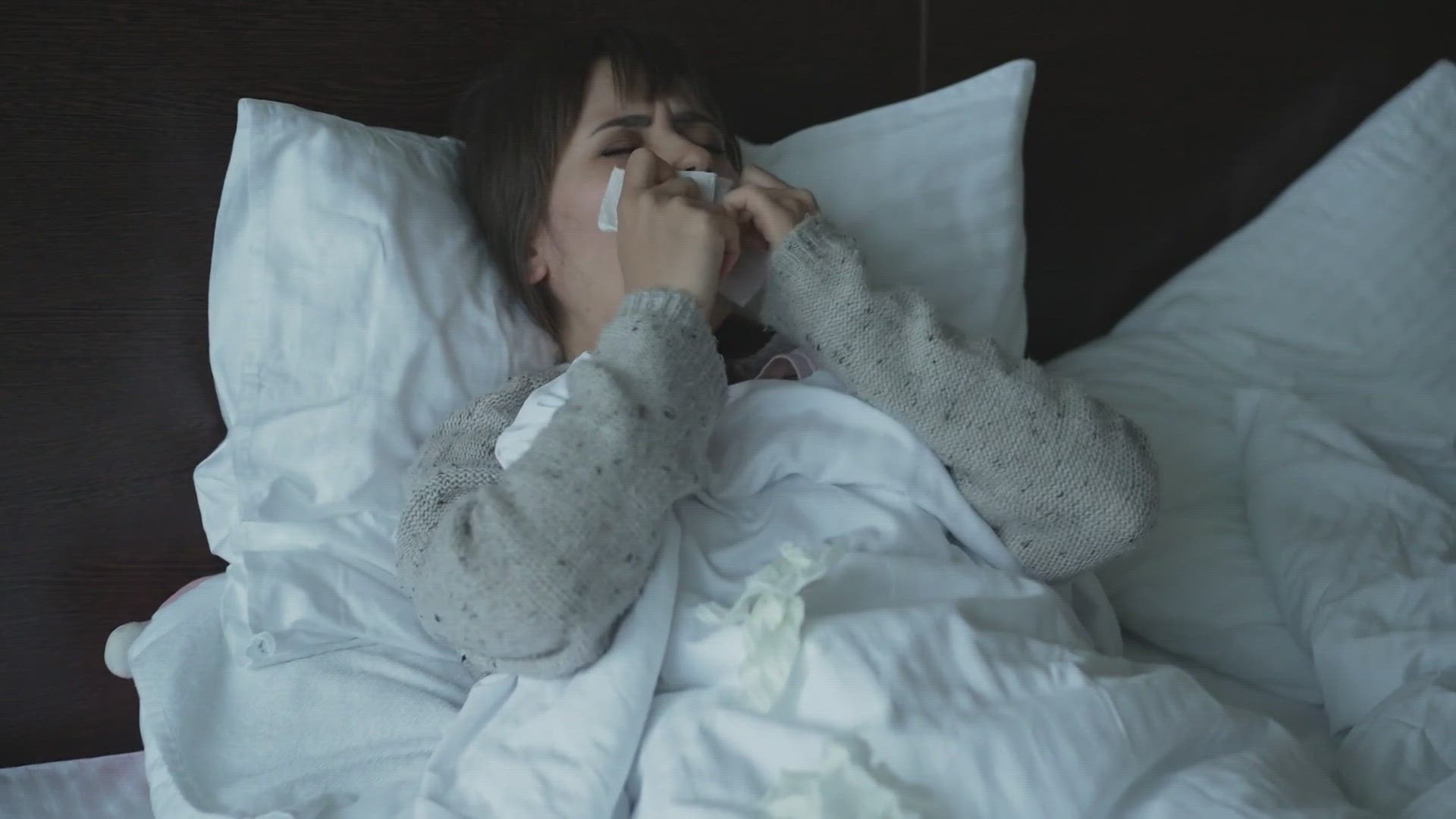CLEVELAND — Days after Christmas and before New Year’s celebrations, health officials in Cleveland were seeing an uptick in respiratory viruses like flu, COVID, and RSV. So what should you do if you're sick or trying to avoid sickness heading into more weekend gatherings?
Colder weather and more gatherings indoors are part of the holiday surge of illnesses experts like Dr. Amy Edwards have come to expect. She said most people who are getting sick aren't ending up in the hospital.
"It's just that post-normal holiday bump that we always see every year," Edwards said. "Viruses thrive in this type of environment and take off like wildfire."
Edwards is a pediatric infectious disease specialist at UH Rainbow Babies and Children's Hospital. She says there is still plenty you can do to try to avoid or lessen the impact of illness.
"Just taking basic hygienic precautions," she explained. "You know, coughing into our elbow, washing our hands, wearing a mask when we don't feel well, staying home when we really don't feel well."
"Nothing to panic over," Cleveland Public Health Director Dr. David Margolius added. "I think it is normal, but in general, do your best not to get someone else sick. I mean, that's really what we're hoping for."
Margolius says if you’re feeling good, don't be afraid to get out and enjoy the celebrations in the coming days.
"We know that the isolation of COVID was really harmful to people. So missing all those parties for a couple years, it hurt people, and so I do want to encourage people to go out, see your friends, and have fun," he explained. "We want to make sure people aren't facing isolation the way that they have over the last several years, but at the same time not get other people sick."
Margolius says if you have a fever, runny nose, cough, or sore throat, you're probably contagious. To avoid getting others sick, you may want to opt for a movie at home.
Edwards says getting tested to know what's causing your symptoms isn't necessary for most, but really depends on your situation. If you don't have underlying health conditions and your symptoms are mild, then there's no need to be tested.
However, if you are at a high risk for complications with heart or lung disease or live with someone who is, knowing what's causing your symptoms can be important to get treatment early and prevent it from spreading to the wrong people.
Both Edwards and Margolius said it's not too late to get the COVID vaccine or the flu shot this season, but don't expect that protection to kick in before New Year's parties if you're getting it this weekend. It will take up to two weeks for the shots to take effect.

